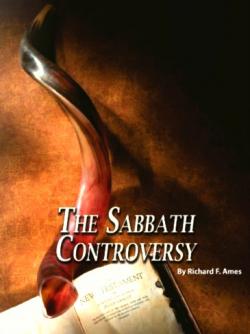The “Second Mouse”
Have you found the wisdom that comes with patience?
The well-known cliché, “The early bird gets the worm” is often followed by another time-worn truism, “The second mouse gets the cheese.” While we chuckle at these mental word pictures, they do contain a grain of truth that applies to everyone.
Physically speaking, we know that promptness and diligence pay off, over time, with increased productivity and with opportunities that the less diligent or lazy person misses out on. We also know, though the “second mouse” may not grasp it, that timing is very important. Avoiding unnecessary risk lets us enjoy the cheese after the danger has passed—rather than being in the position of the first mouse, who tripped the trap.
Do the mice provide lessons for us as human beings? We may not be after the morsel of cheese, but the principle is the same. Avoid the obvious dangers in life, and do not take careless risks that may bring dire consequences. Also, be ever vigilant for opportunities that others may overlook. The writer of the book of Proverbs, in your Bible, covered these subjects extensively for our attention. For example, “A prudent man foresees evil and hides himself, but the simple pass on and are punished” (Proverbs 22:3). The wisdom in this book is very plain. Further, we read: “He who keeps the commandment keeps his soul, but he who is careless of his ways will die” (Proverbs 19:16).
We should always be alert so that bad decisions do not entrap us, and so we do not face dire consequences from hasty actions that we did not consider carefully enough. A moment’s carelessness can cause a lifetime of grief. The importance of keeping our eyes open—being aware of what is going on—is a familiar theme throughout the Bible. Consider: “Let your eyes look straight ahead, and your eyelids look right before you. Ponder the path of your feet, and let all your ways be established” (Proverbs 4:25–26). Coaches in any sport will constantly tell their players, “Keep your head in the game.” This admonition, echoed often in Scripture, calling us to a mindset of acute awareness, is certainly important in the “game of life” as well.
Ancient King Solomon also wrote a famous and eloquent passage about timing, revealing the importance of remaining in harmony not only with the seasons of the year, but also the seasons of our lives. He begins: “To everything there is a season, a time for every purpose under heaven” (Ecclesiastes 3:1). Solomon goes on in this passage to give examples of real-life issues affected by timing. “A time to weep, and a time to laugh… a time to keep, and a time to throw away… a time to keep silence, and a time to speak” (vv. 4, 6–7).
We can see that Solomon, in giving this timeless advice, had a profound understanding of the importance of time and timing. As physical human beings, you and I have been allotted by our Creator a span of time in which to gain experience and build in our lives God’s holy and righteous character, to prepare for the eternal phase of His great plan, as revealed by the annual Holy Days as we cycle through them each year.
Satan is busy setting “mouse traps” to catch an unsuspecting populace as he attempts to thwart God’s plan. What will you be doing to avoid those traps? Will you be caught in a trap? Or will you be alert and diligent, so that you—like the “second mouse”—will obtain the reward a loving God is offering to all those human beings who will accept and obey Him?
To learn more about how you can be the “early bird” and the “second mouse,” read our free booklets, The Holy Days: God’s Master Plan and What Is a True Christian? They will help you understand what God is doing in your life, and what you can do to secure the eternal reward He wants you to have.






